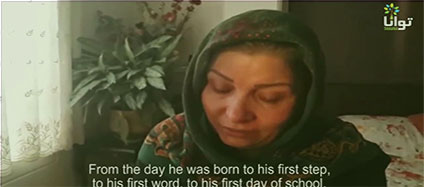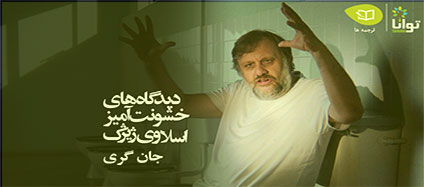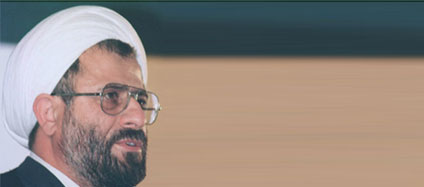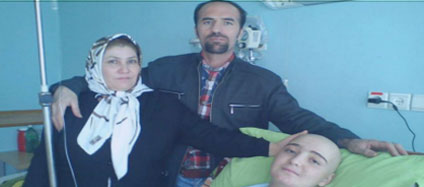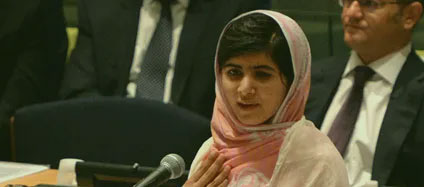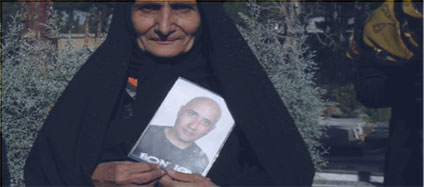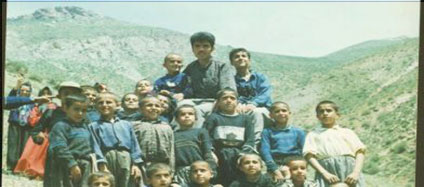In this exclusive Tavaana translation, Iranian student activist and former political prisoner Peyman Aref delivers an impassioned plea to Hassan Rouhani to honor his campaign pledges and allow university students expelled for political reasons to resume their academic careers. Aref was sentenced to a year in prison and 74 lashes for “insulting” then-President Mahmoud Ahmadinejad after Iran’s 2009 elections. Despite this harsh repression, he and other persecuted students chose to support Rouhani in the 2013 elections in hopes of achieving greater academic freedom. Instead, Aref’s testimony on behalf of Rouhani’s impeached Minister of Science and Research, Reza Faraji-Dana, prompted the president’s Ministry of Intelligence to interfere with university admissions and block him from enrolling in a Ph.D. program. By fabricating claims against him and intimidating admissions offices, they have thrown up hurdles to keep Aref, one of Iran’s top political science students, from beginning work on his doctorate.
In spite of these obstacles to his education, Aref uses his letter to express his enduring hope that Iran’s government will check its abuses and allow Iranian students to learn without having to fear repression. As his writes in his address to Rouhani: “Mr. President, I understand that bringing moderation and reason to a Ministry of Intelligence used to taking violent approaches and a paranoid view of the world is not easy. Nevertheless, I ask you to take on this important issue and stop denying education on political grounds once and for all.”
Peyman Aref
Peyman Aref to Hassan Rouhani: “I Voted for You to Keep Universities from Turning Into Barracks”
To the president of the Islamic Republic of Iran, the honorable Dr. Hassan Rouhani:
Greetings.
I was among the student activists who took part in the elections and voted for you in 2013, despite all the reservations due to controversies surrounding the 2009 presidential elections.
Among my reasons for political activism in both the 2009 and 2013 elections was the desire to end, or at least decrease, the effects of the university repression project which Mahmoud Ahmedinejad’s administration introduced as the second Cultural Revolution.[1] This had brought Iran’s academic institutions to the verge of annihilation.
Yes, I voted for you so we wouldn’t have any more fired professors or “starred” students.[2]
I voted for you to keep universities from turning into barracks; to end the animosity of security forces towards university students; to stop the framing of students, their blacklisting from continuing their studies, and their imprisonment.
You had promised that we wouldn’t have any more starred students and that nobody would be denied their education because of their activism.
So I voted for you. We all did, and you became the president, formed your cabinet, chose your minister of intelligence, and secured a vote of confidence for him. To be fair, you chose a minister of intelligence who had a record of moderation, logic, and reason. Your choice brought hope to our depressed and repressed hearts, and we started to hope that the Ministry of Intelligence wouldn’t frame anyone or send them to prison for political reasons, that they wouldn’t “star” students and toy with their lives and youth, and that they would finally recognize academic freedom.
You introduced Dr. Mili Monfared to Parliament, and we became more hopeful for reform in the frozen atmosphere of the university. He didn’t receive a vote of confidence, so you introduced Dr. Jafar Tofighi. Dr Tofighi formed an emergency committee to resolve the problems of starred students. I sent him a request regarding my acceptance in Tehran University’s 2012 doctoral class after achieving an elite ranking in the entrance exams. However, eventually we realized that Tehran University and its dean at the time had not even registered me in the [state-run] admissions office, sealing my fate at Tehran University.
No problem, I decided. I would take the doctoral exams again, and I would not do anything to provoke security forces.
I studied for several months and took the political science doctoral exam in March. I was accepted with high scores in the first stage in May, and I was invited to five universities – Tehran University, Tarbiat Modarres, Allameh Tabatabai, Kharazmi, and Shahid Beheshti – for the second stage, which was the scientific interviews.
I went through all those interviews from May to July, and I didn’t receive a score lower than 85 out of 100 in any of them. On August 8, the results were announced. I went to the admissions office, certain of my acceptance; but to my disbelief, I was faced with the note “Failed due to incomplete file; visit the second floor of the admissions office.” The second floor of the office was very familiar to me: the Student and Professor Selection Board and its chairperson, Dr. Morteza Nourbakhsh.
This was the place whose stairs I had walked up and down for six years from 2006 to 2011 in order to get one of my “stars” erased so that I could defend my M.A thesis after signing a pledge [not to engage in activism].
When I visited this Selection Board, I found out that I’d been accepted at Tarbiat Modarres University, but that same day, the Ministry of Intelligence had sent a letter to the selection board, citing article 3 of the selection regulations about “enemies of the state.” Because of this, all my “stars” were reinstated, and I was barred from continuing my education.
I wrote an objection and handed it to the selection board, at their own recommendation. I also wrote a letter to the Minister of Intelligence, reminding him of the meaning of the word “enemy.” I went to members of the parliamentary higher education committee. I went to the Science Ministry and wrote an objection to this decision; in response, everyone from Dr. Tofighi to Dr. Milli Monfared and [your own brother] Dr. Fereydoun wrote, “Mr. Nourbakhsh, please review and resolve the issue, and report back.” The selection board conveyed my objection to the Ministry of Intelligence, offered its own opinion that I should be allowed to continue my education, and asked the Ministry of Intelligence to reconsider. During this time, [Rouhani’s Minister of Science and Research] Dr. Faraji Dana was impeached, and I testified in his defense, which apparently angered the Ministry of Intelligence, and again the framing began.
The objection letter was sent to a six-member committee at the Ministry of Intelligence; then a temporary member of that committee who also happened to be my interrogator combed through my testimony in support of Dr. Faraji Dana, and he dishonestly attributed the words of the other witness in that testimony to me. The other witness is a very prominent and respected former student activist who left the country years ago due to this kind of persecution, and obviously can freely express more radical views than I can. That committee member was able to change the vote of two other members, leading to a voting result of 3-3.
After that, a brave and honorable member of Parliament referred my letter to Dr. Alavi, the Minister of Intelligence, and he issued a clear order to solve the problem and to allow me to continue my education. Unfortunately, this order has been disregarded by the authorities involved. In addition, because of that vote, the Intelligence Ministry committee cannot give a positive or even a negative answer to the selection board’s request. This situation continues today, and the Ministry of Intelligence has refused to answer the selection board’s request for over 40 days now.
According to the Cultural Revolution’s high council regulations, if the Ministry of Intelligence refuses to answer the selection board within 30 days, the selection board is legally allowed to make a decision and act upon it. But due to their fear of the Intelligence Ministry, the selection board has refused to do so and is still waiting for a response from the ministry which might not arrive, even after your administration is long gone.
Meanwhile, it is my youth and my life which are being wasted. What remains is the continuing violation of article 30 of the Constitution by the Intelligence Ministry of your administration – the administration that was supposed to be a moderate, reasonable breath of fresh air, not only in foreign policy but also in the domestic sphere, so that Iran’s universities would no longer have “starred” students in their skies or be painted with injustice.[3]
But, Mr. President, unfortunately the skies of Iran’s universities are still filled with “starred” students under your administration.
You promised happiness to society and the university.
This week at Tehran University, you said that you will keep your promises to students and [hear] their demands.
You are responsible for your promises to people.
Mr. President, I understand that bringing moderation and reason to a Ministry of Intelligence used to taking violent approaches and a paranoid view of the world is not easy. Nevertheless, I ask you to take on this important issue and stop denying higher education on political grounds once and for all.
With respect and gratitude,
Peyman Aref
October 12, 2014
[1] Iran’s Cultural Revolution, immediately following the 1979 revolution, closed universities from 1980 to 1983, then upon reopening them, banned Books and Manuals and purged thousands of students teachers from academia. Hundreds of students were injured or lost their lives in violent attacks on university campuses.
[2] “Starred” students are people who passed university entrance exams, or who attended classes after admission to a university, but who were then banned from pursuing their studies based on their political beliefs and activism, or in the case of Baha’i students, their religion. Authorities would flag students’ academic records with one to three “stars” to ban them from being admitted to an undergraduate or graduate program. This discrimination began shortly after Mahmoud Ahmadinejad became president of Iran in 2005.
[3] Article 30 of the Iranian constitution states: “The government must provide all citizens with free education up to secondary school, and must expand free higher education to the extent required by the country for attaining self-sufficiency.”

